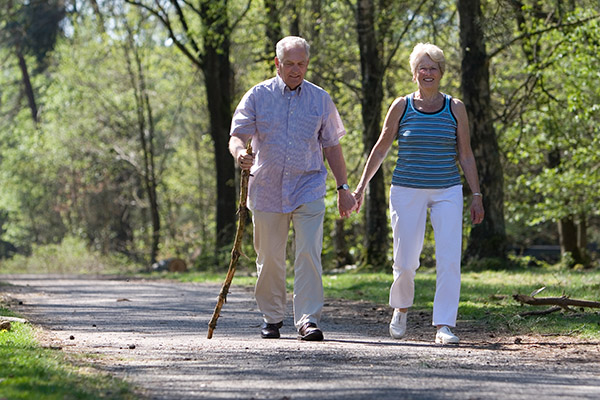- Find out if you have a balance problem
Are you falling or tripping more often? Do you feel like you rely on a friend or furniture to walk safely from one place to another? Have you changed your normal lifestyle to accommodate the fear of a potential fall? If you have answered yes to any of those questions, you may have a balance problem. Balance is dynamic. There are several component parts that contribute to balance such as the musculoskeletal system, the somatosensory system, the vestibular system, and the neuromuscular system. All systems play an equal role in contributing to someone's overall stability. It is absolutely necessary to determine which system(s) are impacting your balance to appropriately treat and find optimal outcomes. You can determine which systems are impacting your balance by contacting your doctor or physical therapist. - Safety First
The next step in reducing your potential for falling is to review your home to ensure that it is environmentally safe? Do you have throw rugs throughout your home? Do you have limited lighting in your hallways and walkways at night? Do you have staircases without handrails on either side? Do you have excessive clutter throughout the rooms in your house? If you have answered "yes" to any of these questions, then you may be at risk for falling from environmental hazards. Modifying your environment is a quick and easy way to decrease ones fall risk and improve someone's safety in the home. Eliminate obstacles, such as scatter rugs, clutter, and phone and electrical cords. Install handrails on stairs and grab bars near toilets and bathtubs. Install non-skid strips in bathtubs and showers and use only non-skid bath mats. Keep items you use often in cabinets you can reach easily without using a step stool. Another important step in safety is to review your daily activities. You certainly don't want to restrict your activities, but you should be aware of activities that may put you at risk. This includes rising quickly from a lying or seated position to standing. - Take charge of your physical condition
Take charge of your physical condition by exercising regularly (always consult with your doctor before starting a new exercise program) and getting regular physicals. Keep your eyeglass prescriptions updated with regular eye exams. Poor vision can increase someone's fall risk. Be aware and monitor any side effects your medications. Many medications are known to cause dizziness or even fatigue, both of which can increase your risk for falling. You should not limit your participation in health activities or regular exercise. Ironically, inactivity itself can increase your risk for falling. Prolonged inactivity can decrease muscle strength and flexibility. In addition, it can decrease your ability to react to sudden changes in your environment, such as a slippery floor or uneven surfaces outside. By remaining active in your daily life, you maintain your strength, flexibility and coordination, as well as your ability to keep your balance in a variety of conditions. More importantly, act now! Stop making excuses on why you have balance problems. Do not wait until you fall. Take charge of your physical condition and your surroundings. If you notice that you are unable to confidently perform certain daily tasks, you are falling or tripping more frequently, and/or you are experiencing symptoms of dizziness you should contact your doctor or physical therapist for an appointment to discuss your symptoms.
Our locations:
- Kennedy: (412)-771-1055
- Crafton: (412)-458-3445
- Allison Park: (412)-487-2787
- Bethel Park: (412) 835-2626
- Atlasburg: (724) 947-9999
Website: www.hesspt.com
Disclaimer: this information is "not medical advice" and is used at the site visitor's own risk.

